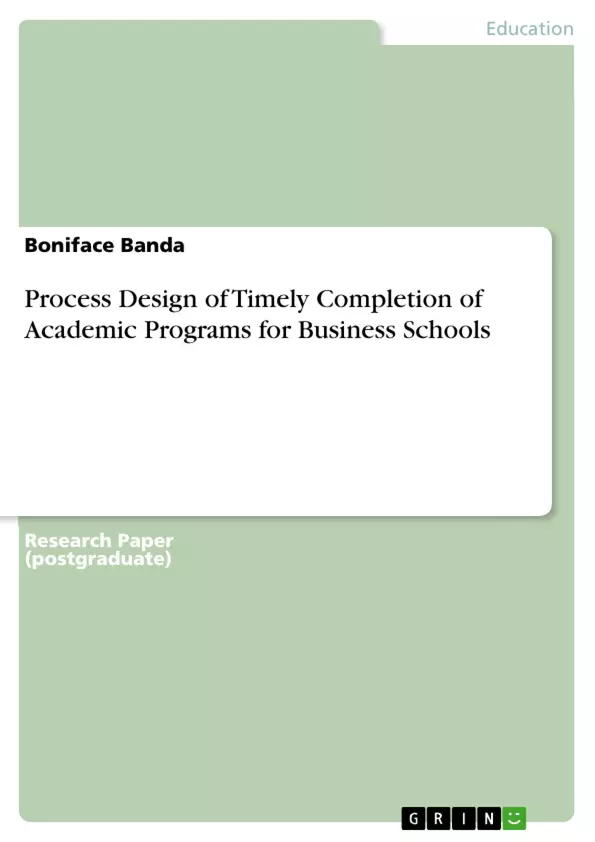Based on the widespread perceptions that most Postgraduate (masters’) students at the Graduate of Business (GSB) at the University of Zambia (UNZA) spend unusually long durations to complete their studies. The researcher decided to investigate these phenomena to identify factors responsible for extended completion or non-completion of Postgraduate students at Graduate School of Business. The aim of the study was to enhance timely graduation of Postgraduate students at the Graduate School of Business. The study employed a mixed method study design because of its efficacy in rendering research findings credible and reliable. Data was obtained from Postgraduate students and Supervisors at the GSB. Structured survey questionnaires were administered to One hundred seventy-six (176) students, and semi-unstructured personal interviews were conducted with supervisors at GSB. Quantitative data was analysed using Social Package and Social Sciences (SPSS) version 16 and qualitative data was analysed using semantical content analysis. The findings of this study indicated that they were a significant relationship between study delay, GSB factors and Supervision factors, while student factors were not found to have a significant relationship with study delay at GSB. The study concludes that study delay at GSB was caused by GSB factors and Supervision factors. The study recommended that all the key players/ stakeholders involved in Postgraduate study delivery to carry out their duties well and efficiently, in order to enhance timely graduation of postgraduate students at GSB and increase the graduation rate for the school.
Table of Contents
- Introduction
- Statement of the Problem
- Aim of the study
- Objectives of the Study
- Research Questions
- Theoretical Background
- Conceptual Framework
- Research Methodology
- Data Presentation and Analysis
- Response rate
- Multiple Regression Analysis
- Model Fitness
- Regression
- Discussion of the findings
- Institutional (GSB) factors
- Supervision factors
- Student (personal) factors
- Limitations and Research Implications
- Conclusion
- Recommendations
- Dissertation model providing the solution to enable timely graduation of Postgraduate students at the Graduate School of Business
- References
Objectives and Key Themes
The study aims to investigate factors that contribute to the extended completion or non-completion of postgraduate studies at the Graduate School of Business (GSB) at the University of Zambia (UNZA) and to recommend strategies for enhancing the timely graduation of postgraduate students. The research employs a mixed-method approach, utilizing data from both students and supervisors to gain a comprehensive understanding of the situation.
- Factors influencing postgraduate study completion at the GSB.
- The impact of institutional factors on postgraduate study duration.
- The role of supervision in postgraduate student success.
- The relationship between student factors and study delay.
- Strategies for improving timely graduation rates of postgraduate students at the GSB.
Chapter Summaries
The introduction establishes the context for the study, highlighting the growing concern worldwide over postgraduate completion rates and the duration of postgraduate programs. The chapter explores the literature on factors that influence postgraduate study completion, including student characteristics, supervisory practices, and institutional factors. The study's objectives are clearly outlined, setting the stage for the research methodology and data analysis sections.
The chapter on research methodology details the mixed-method approach employed in the study, including data collection techniques (structured questionnaires and semi-structured interviews) and data analysis methods (SPSS and semantical content analysis). The chapter also provides a rationale for the chosen methodology and explains how data was obtained from postgraduate students and supervisors at the GSB.
Keywords
This study focuses on the key concepts of postgraduate study completion, study delay, student graduation, institutional factors, supervision factors, and student factors. The research seeks to identify the influence of these factors on postgraduate study duration and to develop strategies for improving timely graduation rates at the Graduate School of Business.
Frequently Asked Questions
What was the primary goal of the study at the University of Zambia (UNZA)?
The study aimed to identify factors responsible for the extended duration or non-completion of postgraduate studies at the Graduate School of Business (GSB) to enhance timely graduation.
What factors were found to cause study delays at the GSB?
The research concluded that institutional factors (GSB factors) and supervision factors were significantly related to study delays, while personal student factors were not.
What research methodology was used in this investigation?
A mixed-method study design was employed, using structured survey questionnaires for students and semi-unstructured personal interviews for supervisors.
How was the data analyzed in this study?
Quantitative data was analyzed using SPSS version 16, while qualitative data was processed through semantical content analysis.
What were the key recommendations of the researcher?
The study recommended that all stakeholders, including institutional management and supervisors, perform their duties more efficiently to increase graduation rates.
Is there a proposed solution for timely graduation?
Yes, the study concludes with a dissertation model designed to provide a specific solution to enable timely graduation for postgraduate students at the GSB.
- Quote paper
- Boniface Banda (Author), 2021, Process Design of Timely Completion of Academic Programs for Business Schools, Munich, GRIN Verlag, https://www.grin.com/document/1182504



